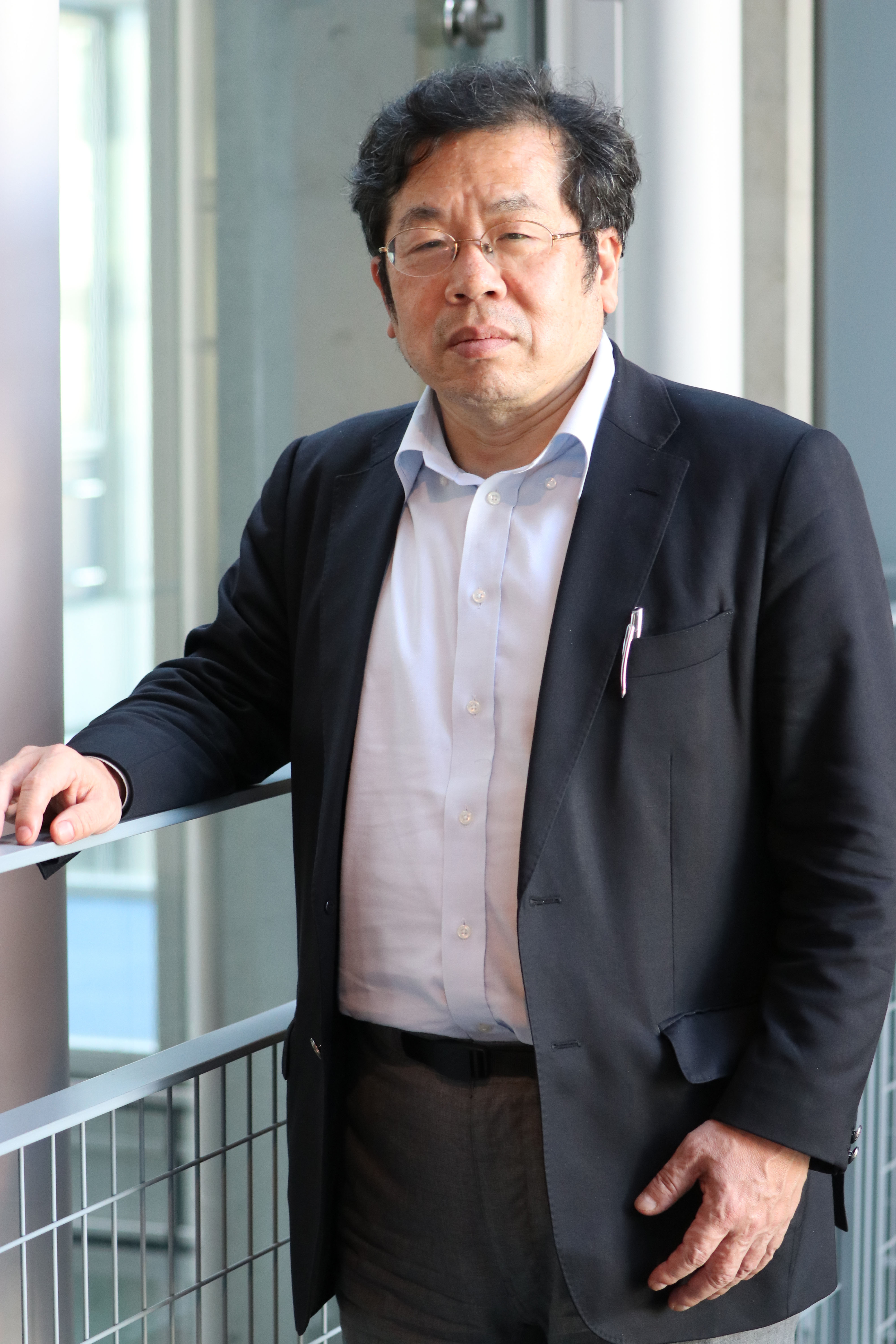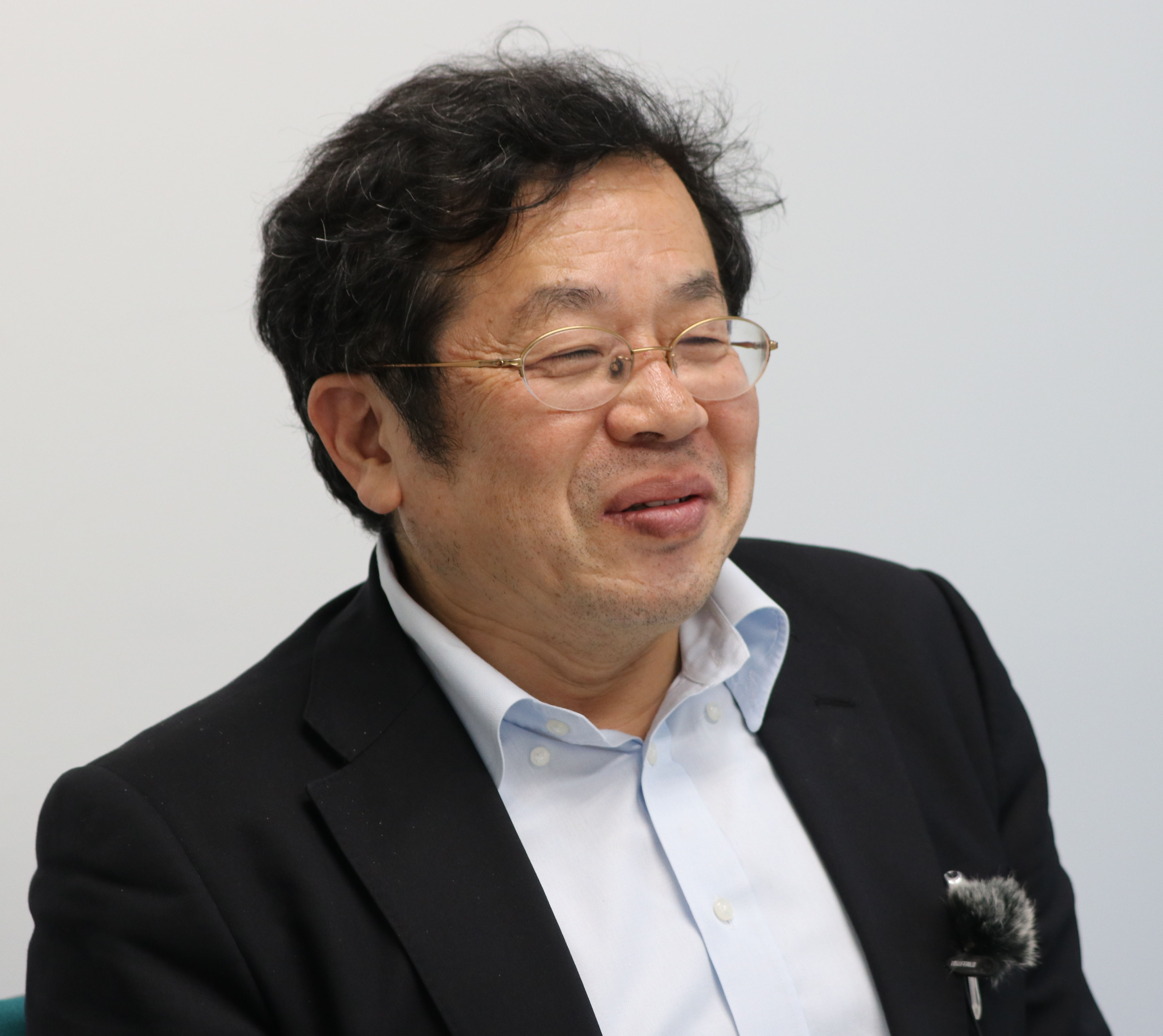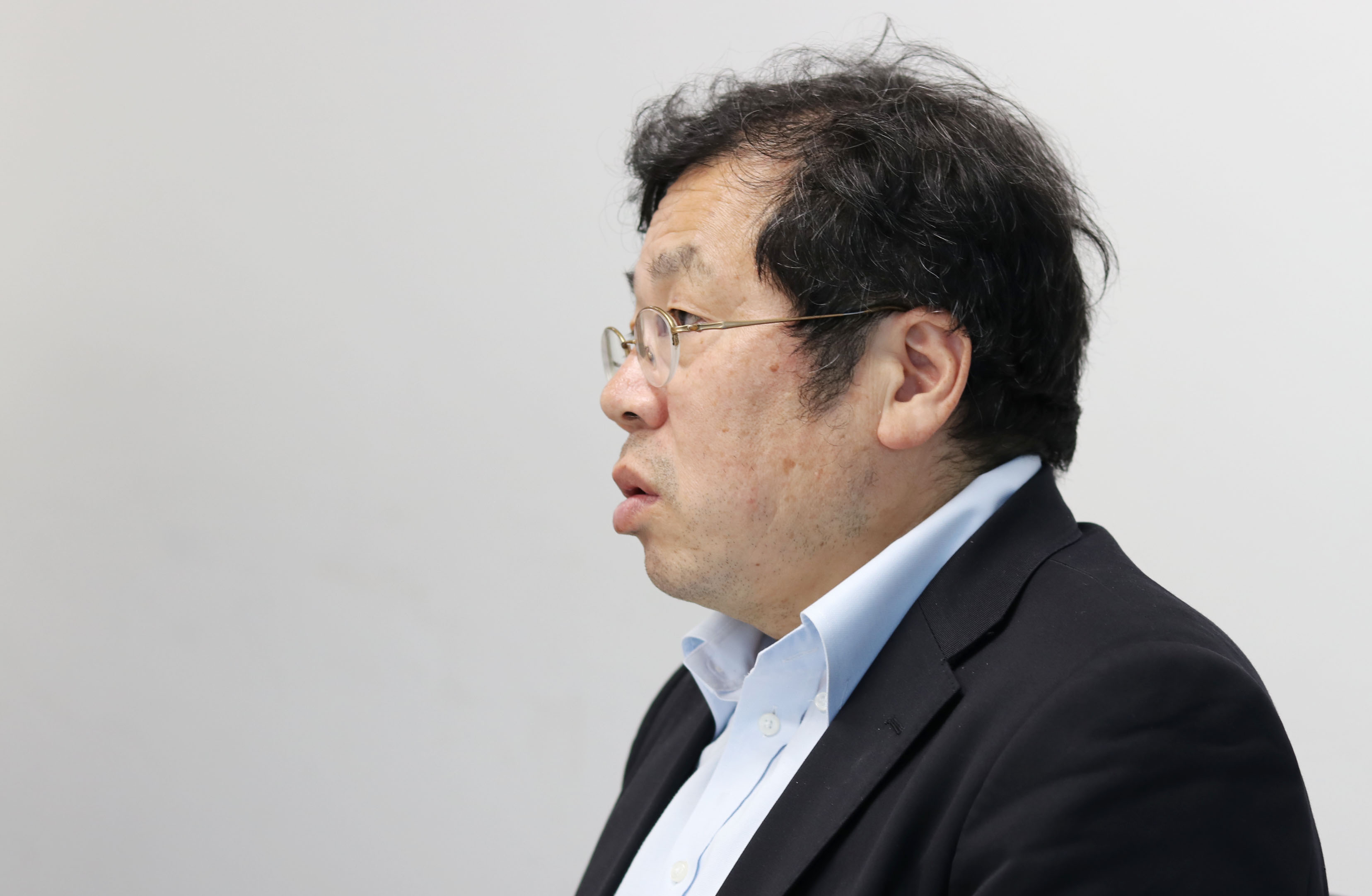
Joined the Ministry of Economy, Trade and Industry (METI) in 1981: Assumed the positions of Director of Petroleum Distribution and Retail Division at the Agency for Natural Resources and Energy; Detailed to the Coalition Provisional Authority (CPA); Director of Technical Cooperation Division at the Trade and Economic Cooperation Bureau; Division of Nuclear Energy Inspection Division at the Nuclear and Industrial Safety Agency; Director of Tohoku Bureau of Economy, Trade and Industry; Councilor at Nuclear and Industrial Safety Agency; Cabinet Councilor in charge of Nuclear Energy Accident Settlement; Director of Japan Oil, Gas and Metals National Corporation (JOGMEC); Current position since 2014.
Q: Would you brief the goal and characteristics of your classes?
A: People ask me what kind of institution the GRIPS is. It is a high-level policy research and education institution only for the master's and Ph.D. programs. As it does not offer undergraduate education, it may not be widely known.
My expertise is the Energy Policy in the GRIPS' Science, Technology and Innovation (GiST) Policy program. GiST is an education and research program that trains people who would be involved in making and implementing STI policies of a nation. The examples of my classes are "Energy Policy Theory" and "Energy Environment and S&T Policies" that are based on my knowledge and experience on the energy policies I was involved in in my METI days. I have 6 classes and research themes that include nuclear energy, petroleum, Middle East, renewable energy, and energy markets.
GRIPS classes are useful for the Japanese local government officials and the developing countries' government officials, including East Asia. Two thirds of the students are government officials in and outside of Japan. Also, two thirds of the students are foreign. The education at GRIPS would be reflected on establishing detailed policies in the developing countries and their local governments.
The U.S.-Iran situation is now very tense. Because of the bad relation between them, the oil price in the city market are fluctuating every day and surged. Japan must rely on the Middle East oil countries for energy resources. Thus, in order to fully understand the basics of energy issues, it is essential to have academic knowledge based on the analyses of the information on Middle East, oil and how to cope with the situation.
Q: You seem to have had very tense days while being detailed to the Middle East from METI.

A: I was involved in the Middle East oil policy ever since I was the Director for the East Asia and Africa Office of METI, especially after the terrorists attacks (March 2001) as the Director for the Petroleum Distribution and Retail Division at the Agency for Natural Resources and Energy. When the Iraq War ended 16 years ago, three Japanese including me were detailed to Iraq to investigate their lifeline and industrial facilities and to support their recovery. At that time, a tragedy happened that two officials detailed from the Ministry of Foreign Affairs (MOFA) were killed while they were moving in the suburbs of Bagdad. I was lucky as I could obtain the critical information in the country from many of my acquaintances there, even in the midst of full tensions and dangers. I know even the Iraq Oil Minister who assumed the position in February 2019 and also his predecessor.
I was also involved in the United States' oil policy for the Middle East and their projects of launching new industries in the days I was the Deputy Director of the Japan External Trade Organization (JETRO)'s Houston Center. I now feel that I have been walking in the center of the world energy issues.
All the above experiences convinced me of the difficulties and complexities of the energy issues and gave me the background information. I am reflecting these in my class of "Energy Security." The members from the Institute of Energy Economics, Japan are taking part in my classes to give the students with accurate, easy to understand and reality-based lectures and discussions.
Q: What do you think are the points of the Energy Policy in the future?
A: Efforts are made for pursuing "power market design," while examining the possibilities and limitations of the renewable energies such as solar and wind energies. I am investigating the energy market design in the Texas State as it is evaluated very high. It is possible to establish solar and wind energy facilities without investing a huge amount of money, while the thermal power and nuclear energy facilities require a huge amount of investment and it takes time to have a return on the investment. This is the issue of "missing money." One of the countermeasures is to have a "capacity market" that deals with not the currently used "kWh" but to use "kW" that is the future energy supply and to collect investments from various energy companies.
Without having a capacity market, the Texas State energy market has been working well based on the complete energy liberalization in 2002. However, the increasing use of renewable energy and the lowering price of natural gas have stopped the coal energy facilities, consequently decreasing the reserve or emergency power from 15% to half of it in summer 2019.
I collect such updated energy information from my friends in the universities and regulatory bureaus in Texas State and use it in my classes to make it a reference for the Japanese energy revolution. I am trying to show the reality instead of copying textbooks. In this context, I am planning to hold an international conference of the "International Association for Energy Economics (IAEE)" at GRIPS in 2021, which will mark the 30th year since the conference was held in Japan last time.
Q: You were the Director of the Nuclear Energy Inspection Division at the Nuclear and Industrial Safety Agency and then a Councilor of the Agency. The Fukushima accident happened while you were a Councilor. Based on such experience, you must have a special thought on nuclear energy.
A: There had been an excessive "safety myth" about the nuclear energy before the accident. Also, the communication between the energy companies and the regulatory authorities had not been going well. There had been only a little sense of crisis that the energy companies would be expelled from the market, unless they did their best in advancing the safety level, before the regulatory authorities took actions. The tragedy has considerably improved the information disclosure and communications between them.
Voices that call for the disclosure of the information still remain, but the discussions between the regulatory authorities, the electric companies and related councils have been uploaded on YouTube. Many people were alert to the YouTube information after the tragedy, but the number of the YouTube viewers seems decreasing these days. There is basically no problem for the regulatory authorities to have all the information open to the public. Exceptions are the information on intellectual property rights and personnel information, anti-disaster measures and terrorists attacks countermeasures, diplomatic secrecy, and nuclear material protection, all of which are in line with the international regulation standard.
We need to train such people who correctly understand oil and nuclear energy, establish policies and make research on how to solve the energy issues in Japan and the world, safely provide energy, and develop safe energy in the future.
Q: Would you talk a little more about training personnel to be involved in energy policies?

A: GRIPS did not have any experts on energy or East Asia before I joined the institution. Both the Japanese and foreign students seem not to have been interested in Japan's policy on East Asia. However, the oil price surge and its ripple effects to other products make people to think about how to secure oil at a low cost. It means that the training of government officials is important who can establish long- and mid-term policies by carefully examining where the sources of the issues are.
The energy policies vary very much depending on the country and region. There are no general answers that can be applied to all cases. I present several models to the foreign students as to how to interpret the fluctuation caused by the current national situation and geopolitics and ask them to think what kind of scenarios are most suitable to their originating countries. This means that the classes for the Japanese students is different from those for the foreign students.
Securing energy sources is a big issue that affects Japan's future. There is no division by the background nor by science major or non-science major, when we think about energy issues. If you have English language capability to some extent and strong interest in energy issues, that should be enough to take my classes.
I am carrying my classes in English, as many foreign students are registered in them. There is a chance that the students who finish my classes become energy specialists. Also, the students can have an invaluable opportunity to exchange views with other future leaders in developing countries. I am expecting the students to aggressively study reality-based energy policies.